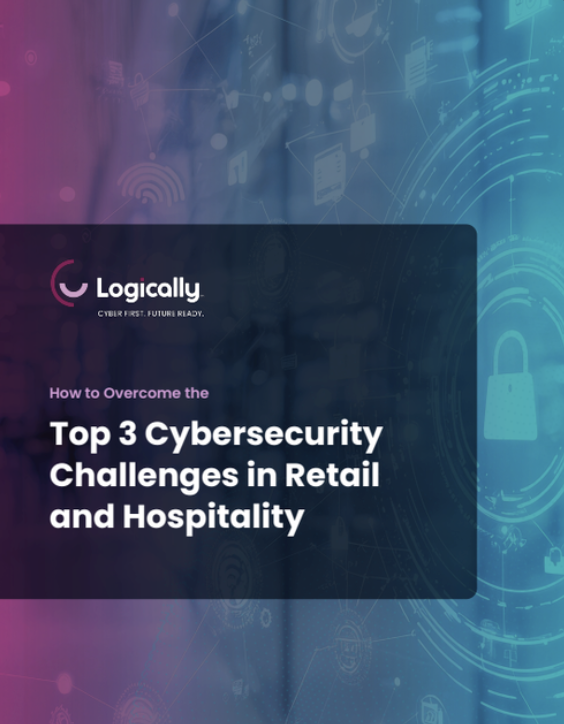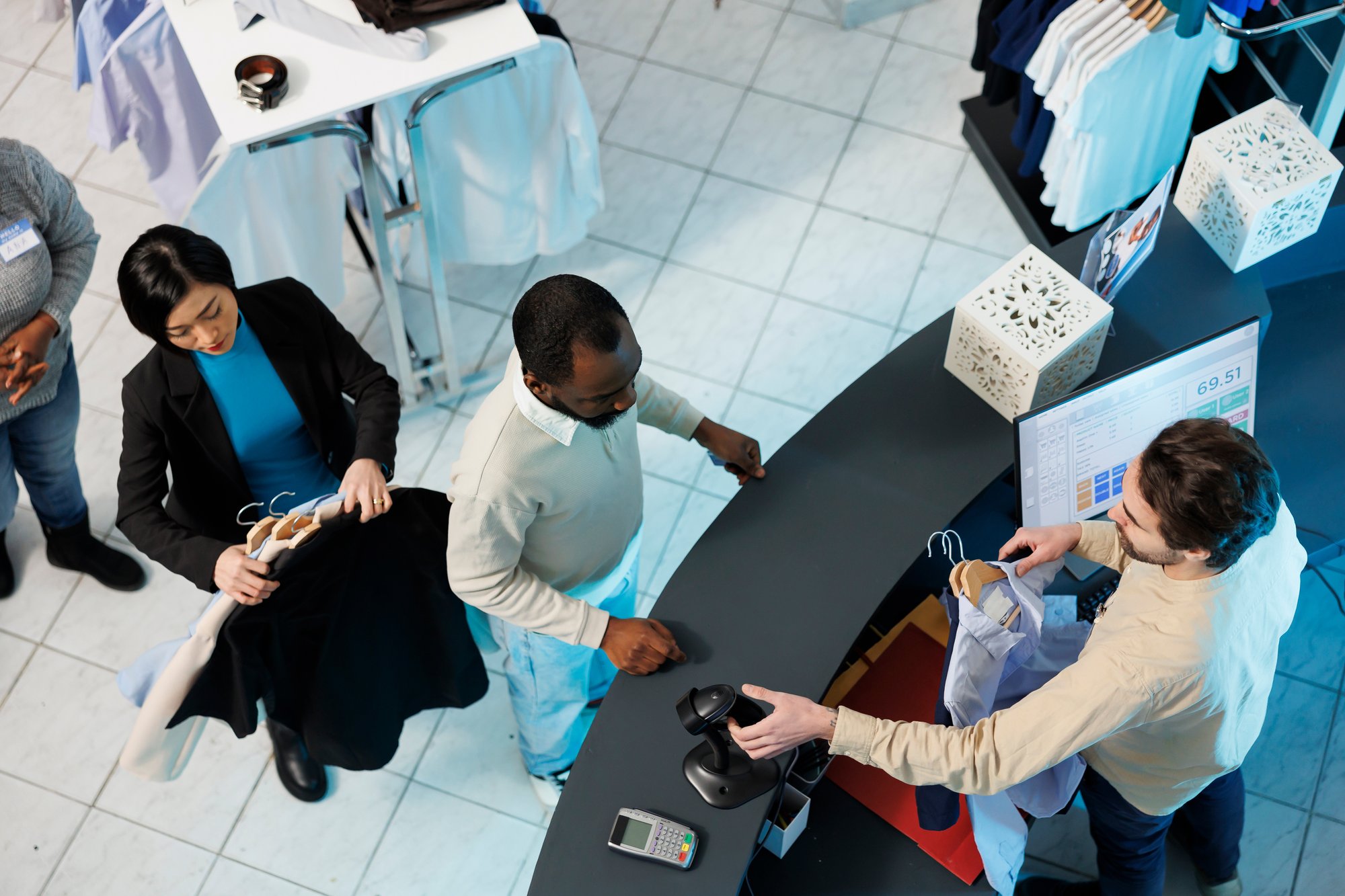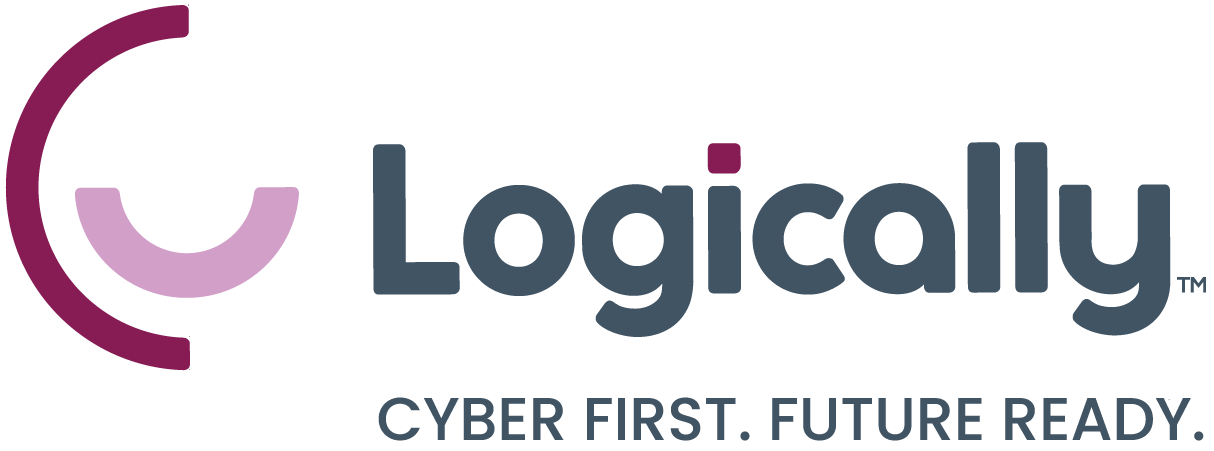Comprehensive Blueprint to Cyber-First Hospitality and Retail IT Solutions
The retail and hospitality industries operate in rapidly changing, customer-centric environments in which technology is integrated into nearly every aspect of operations. From managing customer reservations and loyalty programs to processing payments and supply chain logistics, IT systems are the infrastructure that supports these industries.
However, this reliance on technology also introduces risks that can make it difficult to secure sensitive data, maintain operational continuity, and stay compliant with industry regulations.
Let’s explore ways to mitigate these risks and implement comprehensive, cyber-first IT management and security strategies that build cyber resiliency, scale alongside the business, and reduce operational complexity.
Risks and Opportunities in Retail and Hospitality IT

Data Breaches
Retailers and hospitality service providers handle vast amounts of sensitive customer data, including payment information, booking details, and loyalty program accounts. Unfortunately, this makes them prime targets for threat actors.
Proactively investing in cybersecurity measures such as advanced encryption and threat detection systems is critical to protecting this data and maintaining customer loyalty.
Operational Disruptions
A single cyberattack can paralyze operations, potentially shutting down point-of-sale systems, check-in/check-out processes, and reservation platforms.
In the hospitality industry, even a few hours of downtime can lead to canceled bookings, frustrated guests, and significant revenue loss. For retail businesses, disrupted supply chain systems or non-functioning payment terminals quickly add up to lost sales and diminished brand reputation.
Implementing resilient IT systems with reliable cloud-based backup and disaster recovery solutions helps minimize the impact of unplanned downtime.
Compliance
Retail and hospitality businesses are required to comply with industry- and government-mandated regulations, including the Payment Card Industry Data Security Standard (PCI DSS) and the General Data Protection Regulation (GDPR). Non-compliance with these regulations can result in fines and expose businesses to greater cybersecurity risks, such as ransomware attacks and phishing schemes.
Maintaining compliance with existing regulatory demands and working with IT service providers that stay current on regulation changes and updates protects businesses from costly penalties, data breaches, and the inevitable reputational damage that follows a security event.
Competitive Advantage
Although IT and cybersecurity are technically overhead costs, they can also provide a competitive advantage:
- Enhanced customer experience: Seamless and secure digital experiences for example, mobile apps for self-checkout in retail and contactless room entry systems in hospitality build customer loyalty and set businesses apart from the competition.
- Operational efficiency: Advanced IT solutions reduce manual processes, optimize supply chain efficiency, and streamline back-end operations, enabling teams to focus on delivering exceptional service and not putting out fires.
- Innovation: Secure, scalable IT systems empower businesses to adopt new technologies, such as AI-powered customer analytics or Internet of Things (IoT) enabled inventory management, to drive differentiation in a highly competitive market.
With these risks in mind, let’s take a closer look at some strategies retail and hospitality businesses can adopt to achieve the three core outcomes they need to succeed in today’s technology-driven business environments.

Cyber Resiliency Is the Key to Fast Detection, Response, and Recovery

By focusing on continuous threat monitoring and intelligent infrastructure, businesses can protect operations and ensure exceptional customer experiences even in the face of evolving cyber threats.
Round-the-Clock Threat Detection and Response
Threat actors don’t take a day off. In fact, with the rise of AI-driven cyberattack campaigns, they don’t have to take a second off. Retail and hospitality businesses must maintain constant vigilance, including 24/7/365 threat monitoring, to ensure that ransomware, phishing attempts, and other malicious actions are detected and neutralized quickly.Compliance as a Cornerstone of Security
In retail and hospitality, compliance isn’t just a regulatory requirement it’s a key component of a robust cybersecurity strategy. With the right tools in place such as automated reporting and analytics, end-to-end audit trails, and access management protocols retail chains, hotels, and restaurants can provide the fast, secure transactions customers expect while still meeting regulatory requirements.Minimized Downtime with Resilient Infrastructure
Downtime can be disastrous for retail and hospitality businesses. Imagine a hotel’s reservation system crashing during peak holiday travel season. The guests waiting to check in are frustrated and take to social media to vent, the staff scrambles to process bookings manually, and the situation quickly escalates into a public relations and fiscal nightmare. This is where resilient infrastructure saves the day.By implementing hot spares, nightly backups, and automated failover systems, retail and hospitality businesses can maintain operational continuity even when disruptions occur. Cloud-based platforms take resiliency to the next level by enabling IT and recovery teams to jump in and resolve issues quickly from anywhere at any time.
Cyber resiliency means going beyond simple defenses and building an infrastructure comprising proactive monitoring, regulatory alignment, and disaster preparedness. Retail and hospitality businesses that invest in these strategies can confidently weather threats while delivering the high-quality experiences their customers expect.
“Having an extra layer of security expertise in a small company has been invaluable.” IT Manager, Medium Enterprise Retail Company.
Build Infrastructure with Growth in Mind
.jpeg?width=2000&name=AdobeStock_569427545%20(1).jpeg)
To make scaling seamless across locations, retail and hospitality businesses need a clear and actionable roadmap that includes five core components:
1. Strategic IT Expansion Planning
Retailers and hospitality businesses that lack the resources for executive-level hiring can outsource strategic IT planning to a provider that offers virtual chief information officer (vCIO) services. By working with a vCIO, businesses can ensure that IT infrastructure grows in alignment with their goals so they don’t waste time and money recreating their tech stack as the business scales.
For example, a vCIO can help a multi-location retailer set up switches and wireless networks to ensure reliable connectivity for operations, employees, and guests. The vCIO also protects sensitive customer data during expansion by setting up unified firewall management, like SonicWall’s Network Security Manager, and real-time security monitoring with security operations center (SOC) tools, like SentryXDR.
2. Simple, Automated Network Management
Traditional networking infrastructures come with manual configurations and a need for frequent IT intervention, meaning they can’t keep pace with today’s businesses.
Next-generation networking solutions, like Zero Touch Fabric, bridge this gap. With intelligent software and hardware that create self-configuring networks, automate provisioning, and adapt to changes automatically, Zero Touch Fabric reduces the burden on IT teams and enhances network performance and reliability.
3. Operational IT Support
As businesses grow, they need IT support to ensure all operations systems are ready and functioning, including:
- Procuring and setting up workstations, servers, and switches tailored to each location’s requirements.
- On-site IT support assessments and services, such as LogicCare HelpDesk, to ensure any issues are resolved quickly, minimizing disruptions to customer service and cash flow.
4. Compliance Enforcement
Compliance challenges grow with business expansion, particularly in retail and hospitality, which handle massive amounts of financial and personal information every day. Solutions like PCI compliance add-ons and external vulnerability assessments help businesses enforce security protocols and maintain compliance.
5. Data Protection and Network Upgrades
Data protection and system reliability are critical for business continuity. Tools like Microsoft 365 Backup help ensure customer and company data is secure and recoverable in case of an outage or security event. Keeping up with patches, updates, and network refreshes will also keep IT infrastructure ready to handle increased traffic, changing customer demand, and new technology requirements.
Retail and hospitality businesses that embrace a growth strategy featuring innovative solutions such as Zero Touch Fabric, proactive IT planning, and comprehensive operational support will be prepared to scale operations seamlessly while maintaining efficiency, security, and exceptional service delivery.
“We weren’t using anyone previously, and it was very hard to maintain everything single handedly as we grew. Logically provides our team with peace of mind knowing they are on top of our security and have solutions to help us run more efficiently.” Karin Damiani, IT Manager, New Morning Market
Simplify Operational Complexity with Strategic Retail IT Solutions

The complex workflows and coordinated efforts required to standardize, align, and secure technologies across multiple locations are often more than an in-house IT team can handle.
Businesses can partner with a security-focused IT service provider to create and deploy a comprehensive strategy that takes the complexity out of IT operations. Here are just a few of the ways the right service provider can help:
Comprehensive Assessments
The first step in simplifying IT infrastructure is identifying inefficiencies and risks. Investing in tailored assessments for wireless networks, security, telecommunications, cloud solutions, and risk management will pinpoint issues and provide specific, actionable insights.
For example, a wireless assessment may reveal that a retail chain has inconsistent connectivity in specific locations. Updating the wireless technology fixes the problem, instantly improving the customer and employee experience.
Standardized Technology
One of the most effective ways to simplify IT operations is through standardizing technology platforms and processes. Implementing consistent systems across locations decreases the time required to train staff, minimizes errors, and ensures uniform service delivery in every location during every visit.
For example, a retail business that standardizes its point-of-sale (POS) systems and cloud-based inventory platforms can bring new locations online faster, minimize operational downtime, and accelerate issue resolution.
Strategic Guidance
As mentioned above, working with a vCIO provides affordable access to a trusted advisor who can strategically align IT infrastructure with business goals. A vCIO also provides critical insights into budgeting, risk management, and compliance, ensuring businesses are prepared for future demands while easily navigating the current business climate.
For growing hospitality brands, this might mean establishing a roadmap to ensure every new hotel or property is outfitted with secure, standardized, and scalable POS systems.
For a retail business expanding into international markets, a vCIO can enforce uniform IT policies across locations while identifying region-specific regulatory requirements, ensuring both operational consistency and compliance.
Company-Wide Documentation and Policy Development
Detailed IT documentation and clear policies are essential for maintaining operational continuity, accelerating onboarding for new locations and staff, and reducing confusion during audits or compliance reviews.
The list below, although not exhaustive, outlines which documents and policies will help reduce complexity and enforce consistent processes company-wide:
- IT infrastructure documentation: Comprehensive records of hardware, software, and network configurations for each location to streamline troubleshooting and upgrades
- Standard operating procedures (SOPs): Clear guidelines for IT processes such as system backups, password resets, and incident reporting to ensure consistency across locations
- Acceptable use policies (AUPs): Guidelines for how employees can use company devices, networks, and software to minimize security risks
- Data security and privacy policies: Policies outlining how customer data is handled, stored, and protected to comply with regulations like GDPR or the California Consumer Privacy Act (CCPA)
- Disaster recovery and business continuity plans: Detailed steps for maintaining operations during IT outages, natural disasters, or cyberattacks
- Vendor and software management plans: Documentation of approved vendors, software licenses, and renewal schedules to prevent disruptions from expired contracts
- Onboarding and offboarding checklists: Streamlined procedures for adding or removing employees, ensuring access is properly granted or revoked
- Wi-Fi and network configuration standards: Guidelines for secure and consistent Wi-Fi access across all locations, tailored to the needs of both customers and employees
- Incident response plans: Clear protocols for identifying, reporting, and resolving IT incidents, including who to contact and how to escalate issues
- Compliance checklists: Resources tailored to industry regulations, such as PCI DSS for retail or Americans with Disabilities Act (ADA) compliance for customer-facing technologies
Centralized IT Management and Automation
Operating a business in multiple locations doesn’t have to mean maintaining multiple systems. Centralizing core IT management technologies and consolidating the monitoring and maintenance of systems into a single, streamlined platform can greatly reduce the burden on internal IT teams.
For example, a hospitality chain with centralized IT management can monitor wireless networks, servers, and security systems across all properties from one dashboard. When coupled with intelligent automation tools, this setup can proactively resolve issues such as fixing network connectivity problems before they impact operations.
“I don’t have to stress knowing the securities [Logically] has put in place for us and how on top of it they are.” Karin Damiani, IT Manager, New Morning Market
Related Resources
Logically: Your Trusted Partner for Retail and Hospitality IT and Cybersecurity

How can Logically help?
A Security-First Approach
At Logically, security is at the core of everything we do:
- PCI Level 1 solution provider: We provide compliant payment processing solutions tailored to the retail and hospitality sectors.
- SOC 2 compliance: Our systems and processes meet the highest standards for data security, availability, and confidentiality.
- US-based cybersecurity team: Our cybersecurity team operates entirely from the United States, providing around-the-clock protection against evolving threats.
Decades of Industry Expertise
With more than 20 years of experience serving retail and hospitality businesses, Logically understands the unique challenges these industries face. From maintaining compliance with complex regulations to ensuring customers have a uniform experience in every location, we channel our expertise into delivering solutions and services that reduce operational complexity, enhance security, and support sustainable growth.
Tailored Solutions
We recognize that retail and hospitality businesses require IT solutions that both simplify current complexity and adapt as the business grows.
Logically can help you meet both of those goals with the following services:
- vCIO services: Our vCIOs provide the strategic guidance you need to plan IT infrastructure growth, create detailed roadmaps, and allocate budgets.
- Network setup and management: From configuring switches to managing wireless networks, we ensure your infrastructure supports expansion and delivers consistent performance across locations.
- Security implementation: With robust firewall management and real-time SOC services like SentryXDR, we protect your new and existing locations from cyber threats.
- Centralized management tools: Streamline IT operations with centralized monitoring and maintenance, reducing the burden on your internal teams.
- Standardized processes: Standardizing platforms across locations minimizes training time and ensures consistent, high-quality service delivery.
- Automation with Zero Touch Fabric: Our next-generation networking solutions simplify network provisioning and configuration, enhancing scalability and reliability.
- Regular assessments: We offer wireless, security, cloud, and risk assessments to identify inefficiencies and security gaps.
Proven Track Record
By combining deep industry expertise, innovative technology, and a security-first mindset, Logically delivers services and solutions that allow our retail and hospitality customers to reduce operational costs, improve compliance and cybersecurity readiness, and streamline IT processes and scalability for multi-location operations.
Logically isn’t just an IT provider we’re a partner committed to helping your business thrive in an increasingly competitive and threat-prone digital landscape. Let Logically focus on your IT and cybersecurity needs so you can focus on delivering exceptional customer experiences.
United FP + Logically
A Proven IT Partner
Hear firsthand from Graham at United FP about his experience working with Logically. Discover why United FP trusts Logically to keep their business running smoothly.













